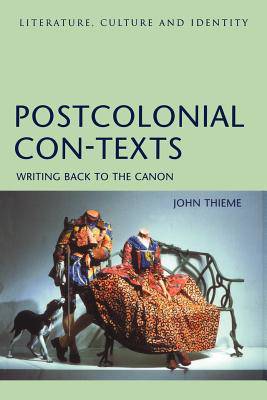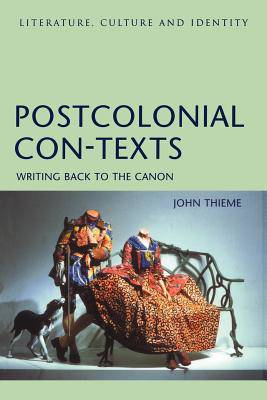
- Afhalen na 1 uur in een winkel met voorraad
- Gratis thuislevering in België vanaf € 30
- Ruim aanbod met 7 miljoen producten
- Afhalen na 1 uur in een winkel met voorraad
- Gratis thuislevering in België vanaf € 30
- Ruim aanbod met 7 miljoen producten
Omschrijving
In recent years works such as Jean Rhys's Wide Sargasso Sea, J.M. Coetzee's Foe and Peter Carey's Jack Maggs, which 'write back' to classic English texts, have attracted considerable attention as offering a paradigm for the relationship between post-colonial writing and the 'canon'. Thieme's study provides a broad overview of such writing, focusing both on responses to texts that have frequently been associated with the colonial project or the construction of 'race' (The Tempest, Robinson Crusoe, Heart of Darkness and Othello) and texts where the interaction between culture and imperialism is slightly less overt (Great Expectations, Jane Eyre and Wuthering Heights). The post-colonial con-texts examined are located within their particular social and cultural backgrounds with emphasis on the different forms their responses to their pre-texts take and the extent to which they create their own discursive space. Using Edward Said's models of filiative relationships and affiliative identifications, the book argues that 'writing back' is seldom adversarial, rather that it operates along a continuum between complicity and oppositionality that dismantles hierarchical positioning. It also suggests that post-colonial appropriations of canonical pre-texts frequently generate re-readings of their 'originals'. It concludes by considering the implications of this argument for discussions of identity politics and literary genealogies more generally. Authors examined include Chinua Achebe, Margaret Atwood, Kamau Brathwaite, Peter Carey, J.M. Coetzee, Robertson Davies, Wilson Harris, Elizabeth Jolley, Robert Kroetsch, George Lamming, Margaret Laurence, Pauline Melville, V.S. Naipaul, Caryl Phillips, Ngugi wa Thiong'o, Jean Rhys, Salman Rushdie, Djanet Sears, Sam Selvon, Olive Senior, Jane Urquhart and Derek Walcott.
Specificaties
Betrokkenen
- Auteur(s):
- Uitgeverij:
Inhoud
- Aantal bladzijden:
- 208
- Taal:
- Engels
- Reeks:
Eigenschappen
- Productcode (EAN):
- 9780826454669
- Verschijningsdatum:
- 14/02/2002
- Uitvoering:
- Paperback
- Formaat:
- Trade paperback (VS)
- Afmetingen:
- 168 mm x 224 mm
- Gewicht:
- 322 g

Alleen bij Standaard Boekhandel
Beoordelingen
We publiceren alleen reviews die voldoen aan de voorwaarden voor reviews. Bekijk onze voorwaarden voor reviews.







